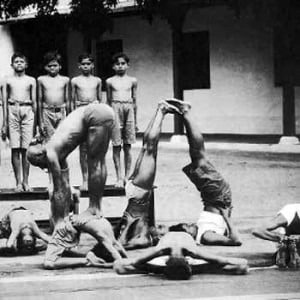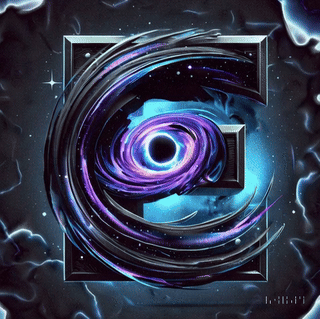Bellur Krishnamachar Sundararaja Iyengar also known simply as BKS Iyengar, or Iyengar has been one of the foremost teachers of yoga in the 20th and especially in the 21st century. He is the founder of the style of yoga called Iyengar Yoga and passed at the age of 95 on August 20th 2014. He was also one of the students of Krishnamacharya who is considered the father of modern yoga.
He was born in 1918 in Bellur, Karnataka. Iyengar had a tough childhood; he was often sick with various illnesses including: influenza, malaria, typhoid fever, tuberculosis, and was generally malnourished. His family was a part of a priestly brahmin caste and when he was five he moved to Bangalore. About four years later, his father died.
Iyengar’s life shifted when he was 15 and his brother-in-law Sri Tirumalai Krishnamacharya asked him to come to Mysore to improve his health through yoga practice. This steadily improved his health until he was 18 and Krishnamacharya asked Iyengar to move to Pune to continue to spread the teachings of yoga. During the

three years that he studied with Krishnamacharya he had a troubled relationship with his brother-in-law; he was forced to do household chores and wasn’t treated as a serious student at first. Occasionally Krishnamacharya would tell Iyengar not to eat until he finished a series of complex postures. These experiences vastly impacted the Iyengar style of yoga and is one of the reasons it is so different from the semi-traditional Ashtanga that Krishnamacharya taught Pattabhi Jois (the age of the modern ashtanga practice is questionable). Pattabhi Jois also claimed that he, not Krishnamacharya, was BKS Iyengar’s guru though this was refuted by Iyengar. Together, they are the most prominent teachers in the lineage of Krishnamacharya.
Iyengar moved to Pune at the age of 18 to begin his teaching career. He spent hours each day practicing, learning, and experimenting with different techniques. He taught several celebrities and even taught the queen of Belgium Sirsasana (headstand) when she was 80.
Yehudi Menuhin was the one that brought Iyengar to prominence in 1952. He asked Iyengar to teach him yoga and believed that yoga helped his violin playing, which he was very good at. After receiving instruction, Menuhin brought Iyengar to Switzerland and afterwards Iyengar taught regularly in the West. Now hundreds of Iyengar style yoga centers are located around the world.
Iyengar wrote 14 books, the first of which was “Light on Yoga” which is one of my favorite references for pranayama, asana, and principles of yogic philosophy. His book on the yoga sutras is excellent as well and I highly recommend them to teachers and students of yoga.
Iyengar’s style is gentler than most others, focusing on alignment and the use of props to assist in yoga poses. This is likely due to his interactions with Krishnamacharya. He also injured his spine in a scooter accident, which is likely why he often made use of props for his students. Iyengar had a profound personal practice and even at 90 would practice yoga for up to three hours per day. He was also a regular practitioner of Ayurveda.
Iyengar won several awards before his death in August 2014 from heart failure in Pune, India. This included a gold medal from Krishnamacharya called Yoga Shikshaka Chakravarti, which means “Emperor of Yoga Teachers, Teacher of Teachers”. In 2004 Iyengar was called one of Time’s 100 most influential people in the world and received the fourth, third, and second highest civilian award in the Republic of India. Most importantly, he is largely credited with popularizing yoga around the world and being one of yoga’s foremost teachers.
Iyengar will forever be remembered as a father of modern yoga. His teachings are useful to students of all styles and his unique approach to each student should be remembered by all teachers of yoga. He is a person that forever will be remembered for having a profound effect upon the world.
I would love for you to add any personal experiences or any impersonal experiences that you have gleaned from Iyengar’s life to this. I am very sad that I did not get to meet him or learn from him when I travelled to India. But his books will always be my favorite resources.


2 thoughts on “BKS Iyengar”